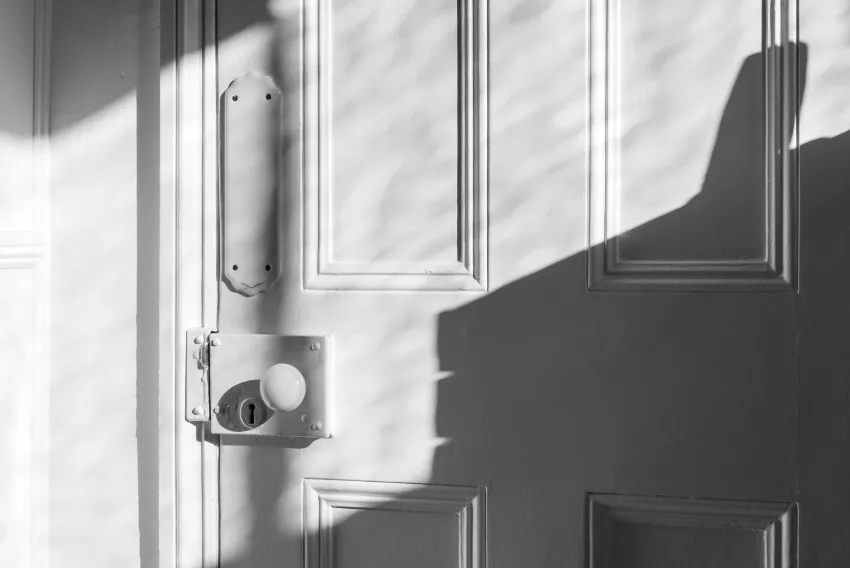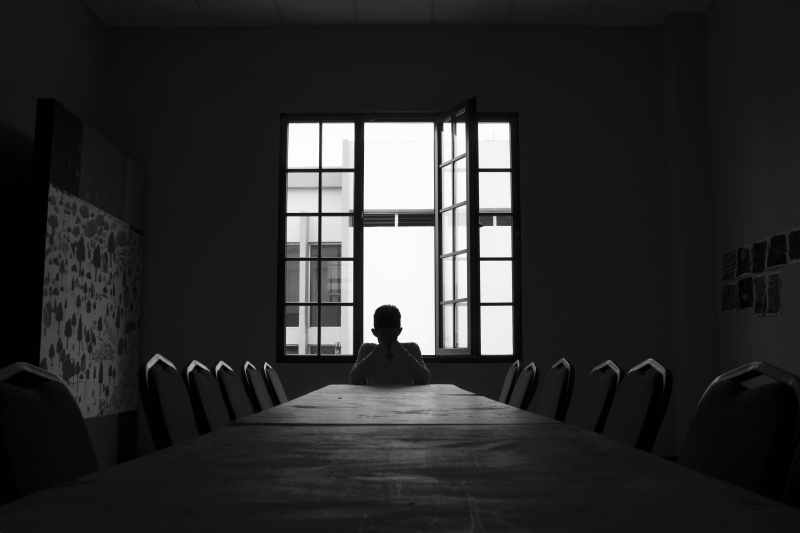We can think abstractly about the world only to the degree to which the world itself has already become abstract.
—Fredric Jameson, The Political Unconscious
The deadly pandemic conditions demand a radical reconsideration of all forms of critical investigation—not only immunology, demography, epidemiology, and health studies, but also practices of knowledge that address the braided futures of racial justice, global capital, climate change, and the public good amid the predations of fast and slow violence. As I teach my classes through the aperture of a tiny camera, the future of the humanities also feels profoundly at stake. Yet as a researcher and educator, I often feel strangely immobilized; I am mostly groping in the dark, to recall something Freud says when he thinks about the death-drive, reminding us that making little or no headway may be the only way to do justice to certain intense and difficult questions, especially questions concerning la vie la mort. Never have I more acutely felt the torsions rippling through Derrida’s injunction, “Take your time, but be quick about it because you do not know what awaits you.” Yet I am also learning something from this mood of expectant stasis, and to recognize what an unearned gift it is to be in a position to shelter a space for a form of thinking whose indolence, despondence, and désoeuvrement I recognize to be paradigmatically Romantic. To be sure, different communities are differently enduring conditions of extraordinary agony, loss, and uncertainty, but my hope is that this wounding precariousness doesn’t mean that colleagues react to the current conditions by reaching too quickly for certitude, thereby abandoning a Romantic predilection for not-knowing and non-knowledge that is inseparable from the open-ended labor of professing the humanities.
Arundhati Roy tells us that the COVID-19 moment is “a portal, a gateway between one world and the next.” Her claim is as much an invitation to consider the possibilities of the threshold as it is a summons to make the crossing. In that spirit, let us resist the temptation as thinkers dedicated to the exploratory energies of critique too hurriedly to traverse this verge, as if claiming to know in advance what lies or should lie on the other side. I say this while also fully acknowledging the importance of never losing sight of what must await us on the far shore. Certainly, let there be the abolition of the cruel racisms and structural inequalities that the pandemic exacerbates but whose miserable origins lie in the global system of slavery that was perfected during the time of Blake and Wollstonecraft and Equiano. But what a theoretically inflected humanities will look like once it has made this perilous passage—assuming that it makes it at all—is for me much less certain and may in fact be indifferent to certainty. In the midst of the HIV/AIDS pandemic—which remains a pressing concern, with well more than thirty million deaths to date—Paula A. Treichler’s How to Have Theory in an Epidemic (1999) was taken up as an exemplary defense of thinking critically about the experiences, representations, and understandings of HIV and AIDS. For Treichler the secreted deaths and ungrieved losses of the AIDS pandemic made sustained critique a mandatory part of learning to live with a virus for which there is still no vaccine and that has always disproportionately affected marginalized communities—not necessarily so for this latest pandemic, when we see a surge in a summary decisionism that denounces what is called “theory” to be useless and distracting, if not dangerous. How not to have theory in a pandemic is too often the order of the day. Ground zero for this denegating gesture is the reaction to Giorgio Agamben’s brief speculations about the Italian government’s “techno-medical-despotism” in response to the crisis. What interests me here is less the persuasiveness of Agamben’s claims and more the level of outrage that those claims have triggered, up to and including the denunciation of his entire biopolitical project. “Forget about Agamben,” Sergio Benvenuto proclaims. This immune or perhaps autoimmune gesture has spread virally through elements of the scholarly community, leading thinkers to disavow tout court the risky gesture of thinking aloud about the topical as an always already abstractable matter rather than as an ethical substratum beyond which no further contemplation is required or permissible: “It would be obscene and unethical to theorize about the epidemiological catastrophe that is unfolding under our very eyes,” Rosi Braidotti writes: “This is not a time for grandiose theorizing.” Professing cultural critique was once treated as “the weak link” in the war on terror; now it is characterized as the chink in the armor in the war against the virus. Whence comes this moralizing panic regarding the putative immodesty of theory, its embarrassing untimeliness and inertness? Of what contagion is this reaction a neuralgic symptom? Why do “practitioners,” or whoever is imagined to be the antithesis of “theorists,” assume that theory is theirs to know and claim with such confidence? And who but the more vulnerable members of the profession—graduate students, new or precariously employed scholars—most feel the force of this kind of authorized interdiction?
These questions all sound uncannily familiar because, since long before the pandemic, theory has been the subject of scolding disciplinary measures—always too foreign, somehow at once scarily communicable and maddeningly incommunicable, both catching and perversely out of touch. To a Romanticist, jettisoning theory in favour of the unassailability of practice feels like déjà lu all over again, as if the labor of slandering Shelley, and with him all that is deemed to be self-indulgent and profligate, or the compulsion to disavow the impractical and careless theoreticism of the French Revolution, is never complete. After Romanticism, it seems, there is no having done with theory, and there is no having done with the refined pleasures of having done either. Charging theory with the crime of abstraction and immorality has had a storied career, extending through the 1980s, when the name “Paul de Man” was weaponized as metonym for all that was wrong with a “deconstructionism” whose roots and collaborators, it was suspected, lay, respectively, in Romanticism and with Romanticists. When the previous President of the MLA went so far as to blame Trumpism on the pernicious influence of de Man, you start to understand that the origins of the animus towards critique lie too deep for tears. My point is that if the humanities are indeed passing through a portal, then among the many things to be changed in medias res is the anxiously reiterative sifting of theory from its more practical and productive and less obscene others. Adorno forcefully makes this very point in 1969, another historical flexion point, in a programmatic piece that is written in the tradition of Kant’s snappy essay, "On the common saying: That may be correct in theory but it is of no use in practice." The Prussian philosopher knew a thing or two about the perilous position of theory and critique under duress and amid the emergency measures for which wartime in particular calls or is said to call. Late in his career, Kant jokes that his “ineffectual ideas” about peaceableness will be easily dismissed as so much dreamy and unworkable nonsense. Writing in the mode of a perpetual peace project, he deliberately adopts the genre that was in his day most closely associated with the clueless irreality of philosophy, especially philosophy that gave itself to think untrammelled thoughts that are not sutured to things as they are and to what we know or will know. But Kant is winking at his readership: it was the “sorry comforters” preaching realpolitik who were in fact the dreamers, nourishing fantasies of a completely administered world, and legitimizing what Adorno calls “the repressive intolerance to thought that is not immediately accompanied by instructions for action.”
My question after Kant is whether or in what way will theory survive the current war. Is it to be barred passage through the portal of the present, deemed an unwanted parasite on what is proclaimed to be “real,” “practical,” and thus irrefutably true? If theory is meant to survive, I would suggest, it will be in the mode of survivance, a living-on that is in the service of neither death nor life (including the demise or flourishing of a field, Romanticism, for example), i.e., suspended between worlds rather than compelled to perish in one world or thrive only as praxis in the next. More: it is not the impracticality of theory that is the true source of its inextinguishable trouble, but the deeper scandal of an ineffectuality—or “scarcity,” as I argue elsewhere—that is irreducible to either theory or practice, a thinking beside itself that remains otherwise illegible as long as we continue to allow the dyad of theory and practice to police our conversations. Alain Badiou argues that the pandemic demands “new figures of politics.” Those figures include gestures that are, like Kant’s reflective judgment, not in possession of their own concept and that refuse the imperative for thinking always and everywhere to be productive, actionable, unresigned, or salvific. These would be Romantic figures, in other words, and new in the sense of never getting old. For if Romanticism has taught me anything it is that we do not know what a body of theory can do.


